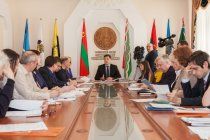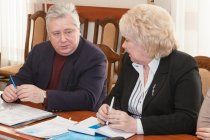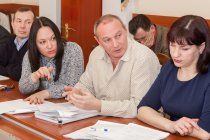 Русский
Русский English
English-







The conditions for the development of entrepreneurship
Комитет по развитию предпринимательства и промышленности
Start of the work of the Supreme Council in the course the third session of the sixth convocation was marked by the holding of this year's first meeting of the Parliamentary Committee on Industry and Enterprise Development. In consideration by the people's representatives - there is a number of legislative initiatives of the President, as well as Vadim Krasnoselsky when he was a deputy of the Supreme Council.
An additional measure aimed at stabilizing the country's economy, His proposal to exempt members of families with many children from payment of entrepreneurial patent.
The last meeting of the discussion was on the date of entry into force of provisions of the law - from January 1, 2017, initially listed in the law-in-draft, or from the date of its entry into force. Point of view of parliamentarians was unanimous - from the beginning of the year, especially as the refund mechanism and corresponding patent practice.
Members of the relevant committee was supported by another legislative initiative of Vadim Krasnoselsky. It was born after numerous meetings with businessmen. It is about changing some of the rules of the Customs Code. Previously, customs officers, believing the customs territory of the whole country, visiting the markets, trading pavilions in order to verify the presence of the sellers of the documents confirming the legality of the importation of goods into Pridnestrovie. This created social tensions and give ground for corruption. In accordance with proposed standards customs control the relevant services should carry out at the state border. When implementing the control functions of the SCC staff must now be guided by the law "On the order of conducting checks at the state control (supervision)". According to the head of the parliamentary committee on development of business and industry, clearly spelled out, in what cases and on what grounds has the right to carry out customs checks.




